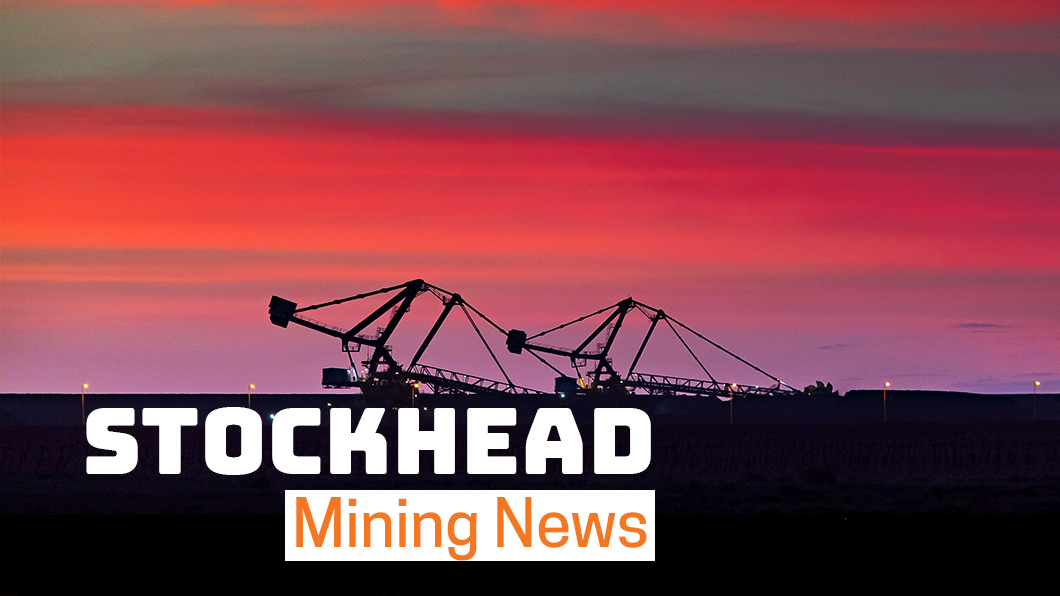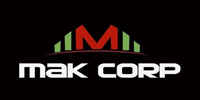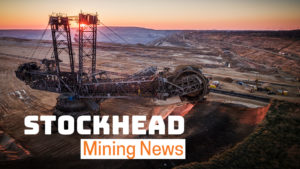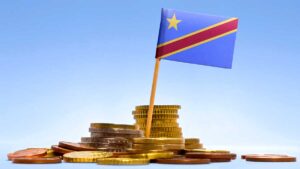Ouch! Congo is slapping higher taxes on minerals like cobalt and it could hurt stocks

Pic: Bloomberg Creative / Bloomberg Creative Photos via Getty Images
The Democratic Republic of the Congo is getting closer to declaring certain minerals “strategic”, which means they will be taxed more — and cobalt has been revealed as one of the battery metals that will be hit.
This will make it more costly for ASX-listed miners with projects in the DRC (or Congo) that are already in production or moving towards production.
>> Scroll down for a list of ASX stocks with projects in the Congo, courtesy of leading ASX data provider MakCorp
The changes are being introduced under the new mining code implemented earlier this year that brought with it higher royalties and the loss of tax exemptions for mining projects.
Minerals that are declared “strategic” will attract a royalty of 10 per cent. With respect to cobalt that is double the current royalty.
A decree listing the strategic minerals is expected to be signed within a month, Bloomberg reported this week.
The majority of the 18 ASX-listed companies with projects in the Congo have lost ground in the past six months – notching losses of between 11 and 67 per cent.
Here’s a table of ASX stocks with projects in the Congo, courtesy of leading ASX data provider MakCorp.
Swipe or scroll to reveal full table. Click headings to sort
| ASX code | Company | One-year price change | Six-month price change | Price Sep 19 (intraday) | Market Cap |
|---|---|---|---|---|---|
| VEC | VECTOR RESOURCES | 1.09090909091 | 0 | 0.023 | 31.9M |
| NZC | NZURI COPPER | 0.404761904762 | -0.180555555556 | 0.295 | 82.9M |
| TAR | TARUGA MINERALS | 0.25 | -0.619047619048 | 0.08 | 11.8M |
| OKR | OKAPI RESOURCES (listed Sep 2017) | 0.1 | -0.405405405405 | 0.22 | 7.4M |
| CFE | CAPE LAMBERT RES | 0 | -0.428571428571 | 0.024 | 24.3M |
| AVZ | AVZ MINERALS | -0.136363636364 | -0.666666666667 | 0.095 | 175.6M |
| EQX | EQUATORIAL RES | -0.148648648649 | -0.112676056338 | 0.315 | 39.2M |
| HIP | HIPO RESOURCES | -0.181818181818 | 0.8 | 0.018 | 6.6M |
| FEL | FE | -0.2 | -0.473684210526 | 0.02 | 7.4M |
| MNB | MINBOS RESOURCES | -0.333333333333 | -0.333333333333 | 0.002 | 11.3M |
| KP2 | KORE POTASH | -0.344 | -0.219047619048 | 0.082 | 71.3M |
| 4CE | FORCE COMMODITIES | -0.37037037037 | -0.630434782609 | 0.034 | 14.8M |
| RMX | RED MOUNTAIN MINING | -0.428571428571 | -0.111111111111 | 0.008 | 5.4M |
| ANL | AMANI GOLD | -0.75 | -0.631578947368 | 0.007 | 9.7M |
| AGG | ANGLOGOLD | 0% | 0% | 2.55 | 4.7B |
The expectation was that the battery metals would be subject to the new label and higher tax, but there is also concern other key metals will be hit as well.
“Everyone is assuming they were looking at battery minerals,” Bill Witham, head of the Australia-Africa Minerals & Energy Group (AAMEG), told Stockhead.
“There was a concern that they would come out and say that copper was, which would be a huge blow because there’s a million tonnes of copper I think produced out of the DRC.”
At the moment the copper royalty is only increasing from 2.5 to 3.5 per cent under the new mining code, but it would be subject to a 10 per cent royalty if it is declared strategic.
Nzuri Copper (ASX:NZC) is trying to bring a copper and cobalt mine called “Kalongwe” into production in the country.
Tiger Resources (ASX:TGS) is already producing copper at its Kipoi project and it wants to produce cobalt as well, but the company doesn’t yet have the facilities in place to extract the cobalt.
An increase in the royalty will make it more difficult to get funding to build a cobalt plant, executive chairman David Frances told Stockhead.
“Doubling the royalty from 5 to 10 per cent on cobalt is a big number,” he said.
“Obviously cobalt prices are reasonably buoyant, and you can probably cope if you’re already in production, but if you’re looking to now build a cobalt plant, then obviously it makes it more difficult to finance those kind of capital builds because the returns are much lower.”
Mr Frances says the company has no issues with paying taxes, but the government is not injecting the cash back into the local communities.
“The big problem we have is that you see none of the benefits of the money coming back to the local people,” he said.
“So we’re paying hundreds of millions of dollars in taxes … and none of that money comes back to the people.”
Other juniors with projects in the Congo include Red Mountain Mining (ASX:RMX), Force Commodities (ASX:4CE), Cape Lambert Resources (ASX:CFE) and Hipo Resources (ASX:HIP).
- Subscribe to our daily newsletter
- Bookmark this link forsmall cap news
- Join our small cap Facebook group
- Follow us on Facebook or Twitter
In August, miners operating in the DRC formed a new body called the Mining Promotion Initiative (MPI) to engage with the government on industry concerns about the new mining code.
“This code compromises those investors who have invested in the country individually and alongside state companies, on terms guaranteed by the government through legislation, specific guarantees and bilateral trade agreements,” MPI general secretary Richard Robinson said when the new industry body was announced.
“Furthermore, should some of the key issues in the new code not be addressed it would discourage further investment in large and small sustainable projects, which is crucial for the DRC economy as well as the mining sector.”
AAMEG is watching the situation closely and plans to go into bat for Australian miners if it gets out of hand.
“We’re not happy with the code changes as it is, but everyone is trying to work together,” Mr Witham said.
“At this stage I think everything is still in negotiation, but AAMEG hasn’t gone over their directly, we’ve only just spoken with various people.
“Certainly it’s been announced, we’re not happy, we assume it’s battery minerals and we certainly would contend that copper, gold and tin for example are not strategic minerals and should be left alone.”
The DRC is headed for an election before the end of the year, but market intelligence firm Fitch Solutions says that is unlikely to have any impact on the current situation.
“Despite a backlash by major mining representatives in the country, the sector seems to have little option but to accept the new regulatory framework due to the DRC’s strategic dominance of the cobalt market and a generally favourable commodity price environment that is allowing miners to take on additional costs,” it said in a recent report.
“Any change in government would therefore unlikely lead to a rolling back of the current state of affairs, particularly considering long-held popular support for increasing local beneficiation with regards to the mining industry.
Stockhead is proud to use MakCorp as a provider of great value, accurate and reliable data on ASX-listed mining stocks. For more information head to MakCorp’s website.

This article does not constitute financial product advice. You should consider obtaining independent advice before making any financial decisions.
UNLOCK INSIGHTS
Discover the untold stories of emerging ASX stocks.
Daily news and expert analysis, it's free to subscribe.
By proceeding, you confirm you understand that we handle personal information in accordance with our Privacy Policy.








